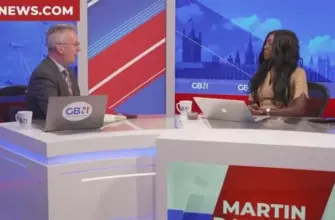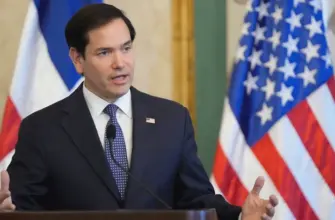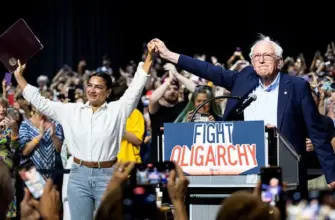Following a vote in the House of Representatives approving their budget proposal, Senate Republican leaders expressed confidence that an agreement can be reached when Congress reconvenes after the Easter/Passover break.
“Republicans are pursuing an ambitious plan. The sooner we enact it, the faster we can counteract the policies enacted over the past four years,” stated Senator John Barrasso (R-Wyo.). This sentiment was echoed as Republican leaders previously announced significant budget reductions.
Barrasso emphasized the need to provide Americans with assurance against what he described as a potential $4 trillion tax increase under Democratic leadership. He plays a crucial role in ensuring Republican support for legislation before it is put to a vote.
Senate Majority Leader John Thune (S.D.) faces the challenge of securing votes from conservative House members by delivering on promises of $1.5 trillion in budget cuts. The Senate’s earlier version of the bill only proposed $4 billion in reductions, creating a substantial difference with the House proposal.
To gain support, Thune and Barrasso are navigating complex negotiations to appease both fiscally conservative members and more moderate Republicans who harbor concerns about potential impacts on programs like Medicaid.
Adding urgency to the situation is the looming debt ceiling deadline expected this summer. Failure to address it could lead to a default.
Despite these challenges, Thune expressed optimism about advancing President Trump’s agenda, stating that the Senate’s legislative calendar will be “packed.” He highlighted several priorities:
- Confirming judicial nominations
- Repealing regulations he considers burdensome
- Drafting legislation related to taxes, border security, and energy policy
Thune indicated that committee leaders were actively working on various legislative items throughout the holiday break. He reiterated his commitment to a process known as “regular order,” which involves bills progressing through committees to foster bipartisanship and trust among lawmakers.
“Regular order” is seen as an alternative to relying on short-term continuing resolutions, which are viewed as undermining this collaborative approach.
Barrasso asserted that the American public deserves a commitment from Republicans to prioritize investments in domestic energy production and border security upon their return.
“Our aim is to swiftly pass this legislation and send it to the President for his signature. We’ll dedicate ourselves to achieving this goal every day until it’s accomplished,” he stated.
Democrats were not immediately available for comment.
The House bill passed largely along party lines, though two Republicans—Thomas Massie (Kentucky) and Victoria Spartz (Indiana)—voted against it due to differing ideological reasons.
House Speaker Mike Johnson (R-La.) explained the rationale behind the package: “This initial major reconciliation package fulfills several commitments. Notably, we are dedicated to identifying at least $1.5 trillion in savings for the American people while safeguarding essential programs.”







